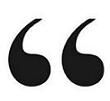As I compile and organize a plethora of published articles under the category of “Stories and Ideas Dave Curry Reported First”, I now have another article to stash away in the swelling plastic tote adorned with that label. I’m aware that any first time readers might think I have such a box, which is why I now have to say that I don’t actually have that sort of box, but that I do indeed have a proclivity towards updating my readers on real estate trends several weeks before national sites latch on to those same trends. A Wall Street Journal article from May 28th reflected the same momentum that I’ve been feeling around the Lake Geneva upper bracket market for the past couple months, and in the article there are also several more nuanced similarities between what I’ve been saying for quite some time and what the WSJ just published.

Buying real estate, particularly a vacation property, is a highly emotional decision. The decision to purchase a home obviously depends not only on a buyers financial ability, but also on the buyers financial security. True financial security and perceived financial security. If your invested funds are up 15% in a year, you have a feeling of increased wealth, even if the money isn’t money you’re planning on spending any time soon. Your income remains stable, yet you feel a little more spend happy, based on the increase in overall wealth. The same happens to the downside. Portfolios take a 40% hit, and you feel poor. It’s not money you’re going to spend soon, or ever, and your income remains stable, yet there’s definitely not a feeling of wealth when viewing those negative returns. The perceived lack of wealth, particularly illiquid wealth, dramatically affects our desire to spend money, even if our income supports the purchase.
I wrote that almost two years ago on this blog, and the connection between stock market valuations and vacation home markets is more significant today than it ever has been. The Wall Street Journal agrees, as do brokers in high end markets around the country. The feeling of wealth is just as important as actual wealth, and no one ever feels like buying a vacation home when they feel overwhelmingly poor. The most recent stock market dive (with special thanks to Obama for helping push it further) is troublesome for the markets, but as long as we hold somewhat stable (within 1000 points), it shouldn’t have much of an impact on the market here.
The newest and best news for both me and the market is that I’m seeing more life in all ranges of the market right now. The upper bracket lakefront market will receive a nice jolt of energy this week once word of my most recent accepted offer makes the rounds. I’ve been blessed to represent a buyer who has successfully negotiated a contract to purchase a lakefront estate listed at $6.95MM. This sale bucks the current trend of high end buyers preferring to buy tear downs and rebuild from scratch. If we can keep this sale together over the summer, it will more than likely be the most expensive sale on the lakefront in 2010. I, for one, couldn’t be happier about it or more excited for the buyer.
The rest of the upper bracket market is relatively active, with a pending offer on a North Shore lakefront listed at $5.75MM, and a South Shore property under contract in the high $3MM’s. One of the lakefronts that I talked about last week as being under contract has already closed for $2.425, or about 13% off of the $2.795MM list price. The entry level lakefront market remains void of motivated buyers, and there are several lakefront properties priced under $1.7MM that I’d take a serious look at if I were a lakefront buyer. The entry level lake access market remains solid, with four pending listings priced under $376k.
I’ve been encouraged by recent activity in the $400k to $550k market- a market that had, up until a month ago, been dead in the water. I’m currently negotiating an offer on behalf of a client on a home listed in the mid $500k’s, and as I wrote last week, I’ve gone under contract on my new Fontana Shores listing priced at $499k. My office’s Harvard Club listing priced at $549k remains under contract as well. So there is life in this mid market right now, and with prices in that individual segment down as much as 25% from the market highs, it’s obvious that price and location are bringing the market back from anonymity. Unfortunately, the bulk of the market- those homes priced from $600k to $1.5MM, remains slow. I’m not sure what it’ll take to ramp up that price range, but for now buyers should delight in the soft market and take advantage of the lack of activity and potential increase in seller apathy.
